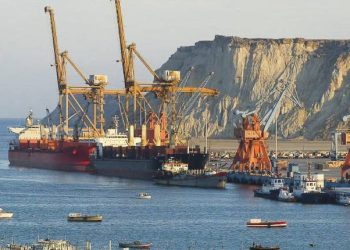Last week, federal finance Minister Ishaq Dar vowed that he would restore what he termed the ‘original value’ of the US dollar, adding that the government would fulfill its promise of providing relief to the masses.
The Pakistani rupee started to gain ground against the US dollar as soon as Ishaq Dar took over the charge of the finance ministry. In fact, the dollar’s upward trajectory received a jolt the moment Mr. Dar had boarded the plane to Pakistan. During his flight, the dollar depreciated by almost seven rupees.
Mr. Dar said he hasn’t yet started his policy work to bring the value of US dollar down below Rs200, which he intends to do. However, this is a positive development as the increase in the price of US dollar and oil bring a wave of inflation in this country. As it happens, once the price of something is increased in the Islamic Republic of Pakistan, it simply just doesn’t come down no matter how much the price of oil or US dollar declines. The price of cooking oil is one of the examples of this phenomenon. The sky-high prices of edible oil have come down to the average level in the international market, but Pakistani consumers are still waiting for the government to pass on the benefit.
I won’t be harsh if I say the behavior of the former finance minister Miftah Ismail was quite strange in this regard. When asked about passing on the benefit of declining prices in the international market, Miftah’s reply was how he could cut the prices when he bought the commodity at a 3-month-old price. This is the same man who increased the price of petrol by 65 rupees per liter within a month, even though the oil prices in the international market were stable at that time.
A welfare state provides relief to its people as much as possible but here in this country, the rulers try to squeeze the masses as much as they can. Let’s hope that Ishaq Dar keeps his promise of reducing the prices of essential items, and this promise hasn’t become part of millions of unfulfilled promises that people of this country have heard over the years. Mr. Dar has to ensure that the benefit of declining oil prices is passed on to the masses, so they could get a long-awaited relief in this time of high inflation.
Coming back to the artificial appreciation of the US dollar, the Deputy Governor of the State Bank has also endorsed Ishaq’s Dar assertion about manipulation of the money market. He revealed that 8 Pakistani banks were involved in exchange rate manipulation and allegedly earned billions in illegal profits. Not only did these banks damaged the economy of the country, pushing millions of people into poverty, but also their selfish act added billions to the national debt.
State Bank of Pakistan (SBP) Governor Jameel Ahmad informed the National Assembly’s Standing Committee on Finance and Revenue that investigations have been launched regarding the role of banks in exchange rate manipulation.
During the meeting, committee’s chairman, MNA Qaiser Ahmad Sheikh, instructed SBP to take the appropriate action against all the banks and exchange companies involved in the manipulation of the exchange rate. He asked the central bank to assess the extent of violation by both entities and take appropriate action so that no one “has the audacity to play with the economy of the country. The committee was of the view that during recent volatility in the exchange rate and the difference between the interbank rate and the rate offered by exchange companies, the banks earned exorbitant profits.
Undoubtedly, these Banks have used the political turmoil for their own financial gains at the cost of the country’s economy. One can’t help wondering if there’s any other country in the world where financial institutions play with the national economy in such a brazen manner.
The Government and State Bank have to make sure that violators will be penalized this time, while also reviewing the concerned laws and regulations to eliminate lacunas if there are any.
May Allah preserve this country, Ameen.



























